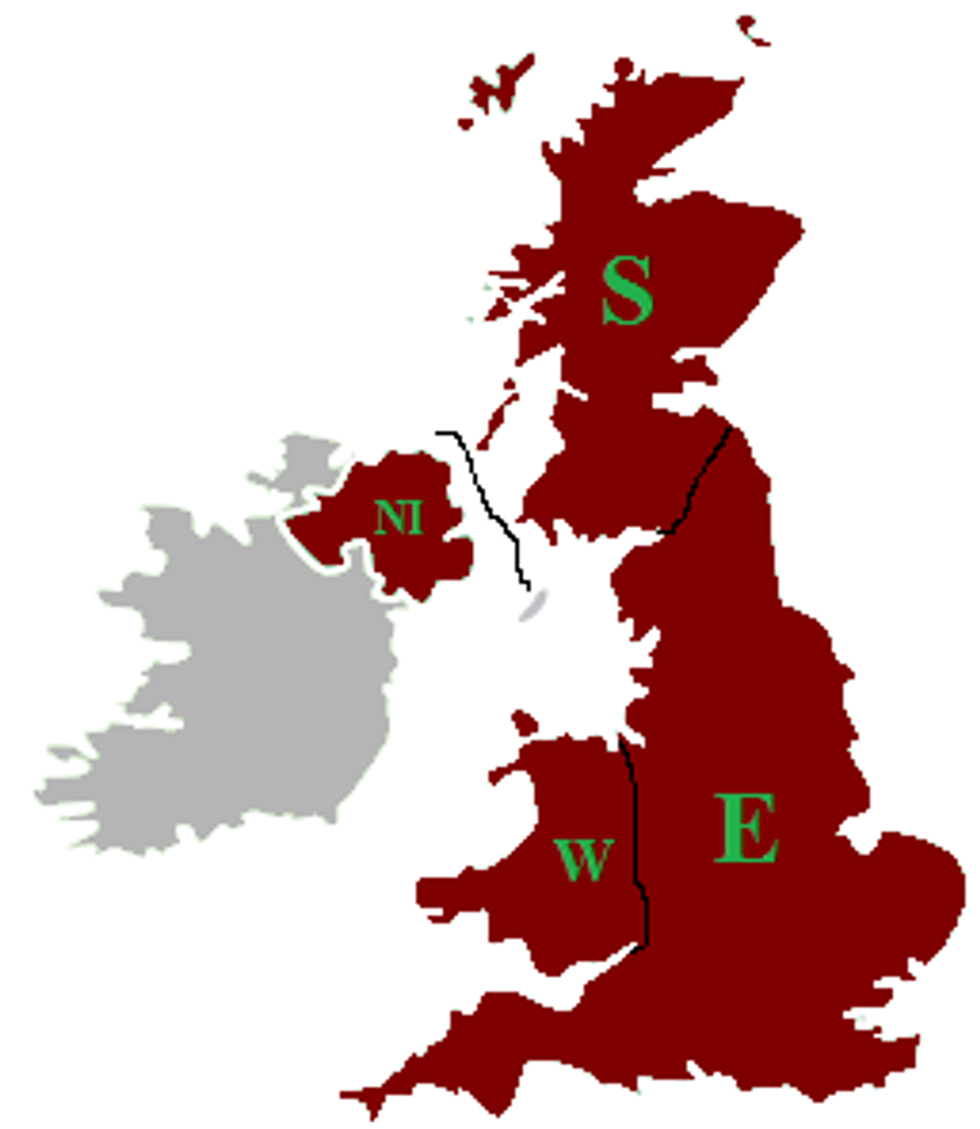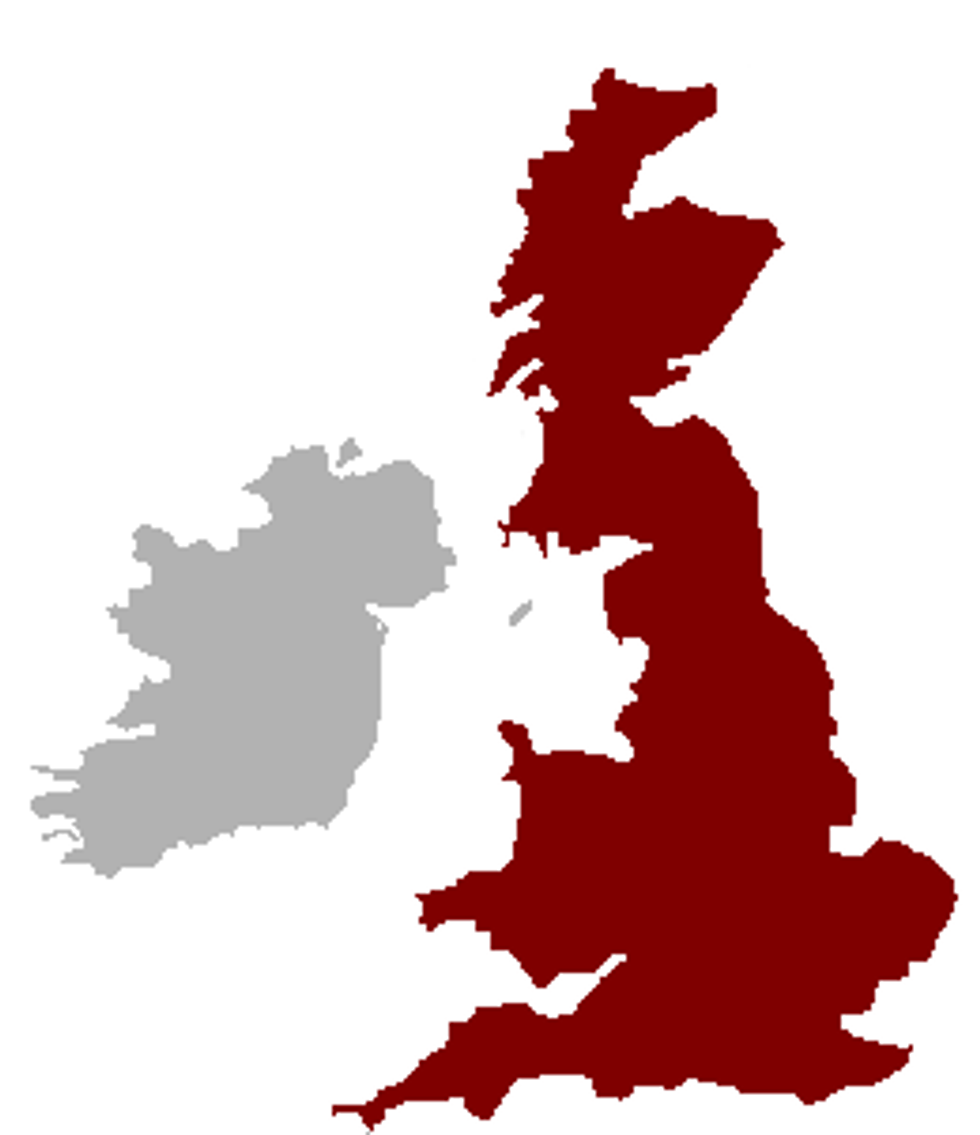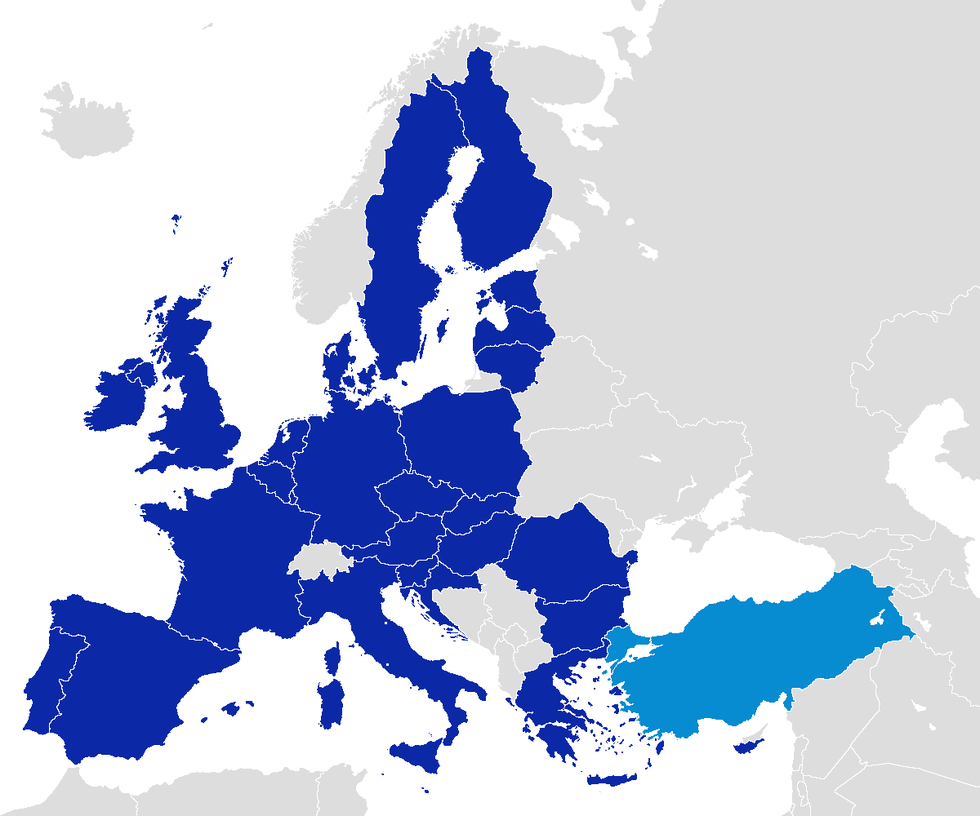As you probably know already, sh*t hit the fan on Thursday when the U.K. voted to leave the European Union (EU). This has spawned outrage across many different countries and many different age groups, as well as tons of unintended consequences and repercussions. But unless you are from the U.K. or other European countries, or have been following the referendum since it's been announced, you probably don't even know what this means, let alone what effects it's had. So I'm going to break it down for you guys, answering some of the most frequently asked questions I've received since scouring various social media for different people's opinions and worries.
What is the UK?
There tends to be a lot of confusion of what the U.K. really is. It's often confused with Great Britain and sometimes the British Isles, but in reality they are all really different. These differences are important in understanding the whole situation.
What is the European Union?
The European Union, or EU for short, is something very different from anything else. It's not a sovereign state as the U.K. is, as all of the countries are able to govern themselves. Rather, it's a close coalition of 28 different countries across Europe, with many different conditions and criteria for being a member.The EU started out as a loose alliance between countries in post-World War II Europe, made to increase economic growth, among other things. It started out as just six countries that decided to pool their steel and coal resources: Belgium, West Germany, France, Italy, Luxembourg and the Netherlands. Eventually, after several years and several different treaties, it's evolved into a strong bond between over two dozen countries on the European continent. The countries above in blue are all of the members, with Turkey in light blue because it is being considered for entry.
There are several economic and political criteria that joining members must meet, but once they do, there are tons of benefits to being in. Most notably, each member gets to use the official EU currency, known as the Euro (€). Also, there is an open border policy between each of the member countries, meaning that members of the EU are free to travel to any other EU country without any special screening or passports.
Additionally, the use of the Euro isn't a requirement for EU members, and there are also certain requirements you have to meet in order to use the Euro. As a result, only 19 of the 28 EU countries have adopted the Euro. The 19 countries that have officially adopted the Euro are known as the Eurozone. Of the nine that aren't part of the Eurozone, seven haven't been able to become members yet, and two (Denmark and the U.K.) have decided not to use it. Side note, the official currency of the U.K. is the Pound
Remember that not all European countries are part of the EU. Switzerland is the most noticeable example, not only being landlocked but also surrounded entirely by EU countries.
What happened with the U.K. and the EU?
In a historic referendum (when the people vote directly for or against a specific law or course of action), the United Kingdom has decided to leave the European Union. The vote was extremely close, with about 52 percent of the total U.K. population voting for the split, and about 48 percent voting against it. The scenario of the U.K. leaving the EU has misleadingly been nicknamed Brexit — a portmanteau of the words "Britain" and "exit."
But why would they want to do that?
That's a question that many are asking themselves right now — even many British people. But from what I can gather, there are a few different reasons why people supported Brexit:
1. The UK should preserve their culture by staying away from such close links to other countries.
2. There is not much trust in the way that the EU is run.
3. Some of the laws and regulations imposed by the EU are unreasonable and can't be easily changed.
4. The EU prevents its member countries from effectively governing themselves.
5. There is good reason to lose confidence in the value of the Euro.
What does this mean? What are the repercussions?
There are several different consequences to the passing of this referendum, some unintended and unforeseen, and a good amount being negative. The value of the Pound has gone down dramatically, to the lowest it's been in a little more than 30 years. This may seem good to people in the U.S, as the American dollar is now worth quite a bit more than the Pound. But this inflation might have a negative impact on the economy as a whole, and in some ways, it already has: The Stock Market has dropped significantly over the past few days, likely to continue for a while.
There's also worries about how this will affect the relations the U.K. has with other countries in the world. Obama has recognized that the bond between the U.S. and the U.K. will have some changes. There is a lot of speculation about how other countries are reacting, though. Some people even think that the U.K. itself will disband, and that Scotland will seek EU membership on it's own.
Additionally, the Prime Minister of the U.K., Dave Cameron, has decided to resign from the office. This won't take effect until later this year, however, and the process of selecting the new Prime Minister has already begun.
What do we do now? Can this be undone?
Most people I've seen don't really know how they should react to this, or what course of action they should take, if any. One of the most common questions I've seen being asked is "Can the U.K. ever re-join?" But the answer isn't quite that simple. Although all members have the right to, no country has ever left the EU before, and the process is lengthy and complicated.
According to the official treaty of the European Union, the U.K. now has to start forming new agreements, negotiations and terms — a process that will take months, if not years. Some want to wait until the end of Cameron's term before making these negotiations, while others think that it's not necessary until other informal agreements are formed. That being said, it is technically possible for the U.K. to reverse the decision, there is a huge emphasis on the "technically."
For lack of a better phrase, I would say that there is nothing to be immediately concerned with, for the most part. The whole process of leaving isn't said and done yet, and it won't be for a while. Plus, there has been a ton of uproar throughout not only the U.K. but many countries across the world. These things have prompted several steps to be taken to help avoid the social, political and economic consequences that many people fear. If you're wondering what you yourself can or should do specifically, then the best thing to do would be to keep informed about how the process is going, help to keep others informed and possibly sign petitions and give your political support, however possible.
I'm glad that I have been able to inform you of what has been going on, and that I've cleared up the situation for you even a little bit. If there is anything I have missed, please comment below, and also feel free to weigh in yourself. I'm always open to new information and the opinions of other people, and I'd love to hear what you have to say. All information in this article is current up until Saturday, June 25, 2016 at 10:38 pm Eastern Time.
Sources/links:
http://www.historic-uk.com/HistoryUK/HistoryofBrit...
https://en.wikipedia.org/wiki/United_Kingdom
http://irelandnow.com/island.html
The Difference between the United Kingdom, Great Britain and England Explained-YouTube
The European Union Explained-YouTube
Europe Political Map
http://www.euintheus.org/who-we-are/what-is-the-eu...
http://europa.eu/about-eu/institutions-bodies/
http://ec.europa.eu/enlargement/policy/conditions-...
http://ec.europa.eu/economy_finance/euro/index_en....
http://europa.eu/about-eu/basic-information/money/...
http://europa.eu/about-eu/basic-information/money/...
http://www.yourdictionary.com/referendum
http://www.oxforddictionaries.com/us/definition/am...
http://www.bbc.com/news/uk-politics-36616028
http://www.express.co.uk/news/politics/683178/Brex...
http://www.libdemvoice.org/eu-referendum-a-vote-to...
http://www.vox.com/2016/6/25/12029962/why-did-brit...
http://www.cnn.com/2016/06/24/europe/brexit-afterm...
http://www.cnn.com/2016/06/24/politics/brexit-what...
http://www.independent.co.uk/news/uk/politics/brex...










 Photo by
Photo by  Photo by
Photo by  Photo by
Photo by 










 Photo by
Photo by 
 Photo by
Photo by 

 Photo by
Photo by  Photo by
Photo by  Photo by
Photo by 











